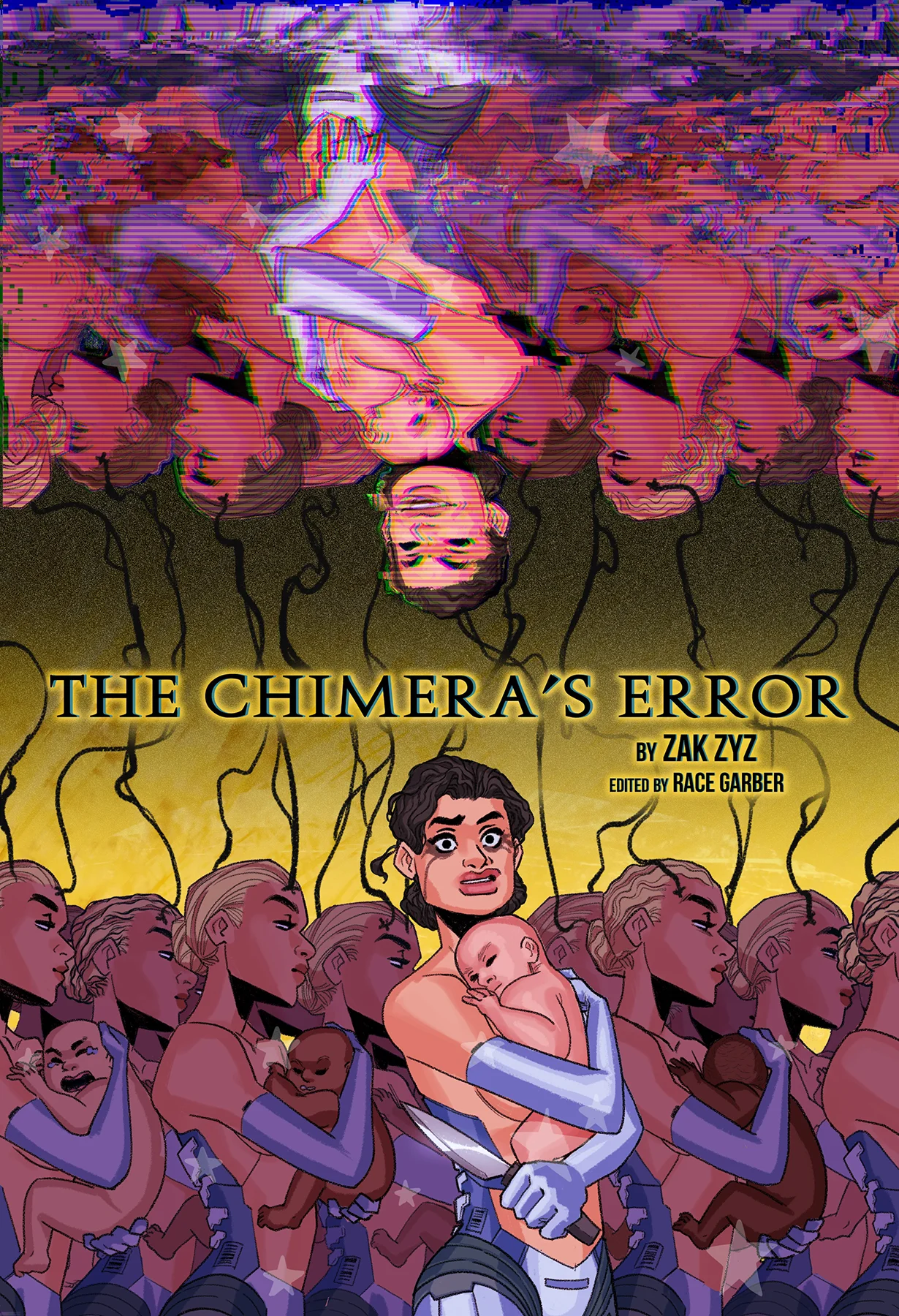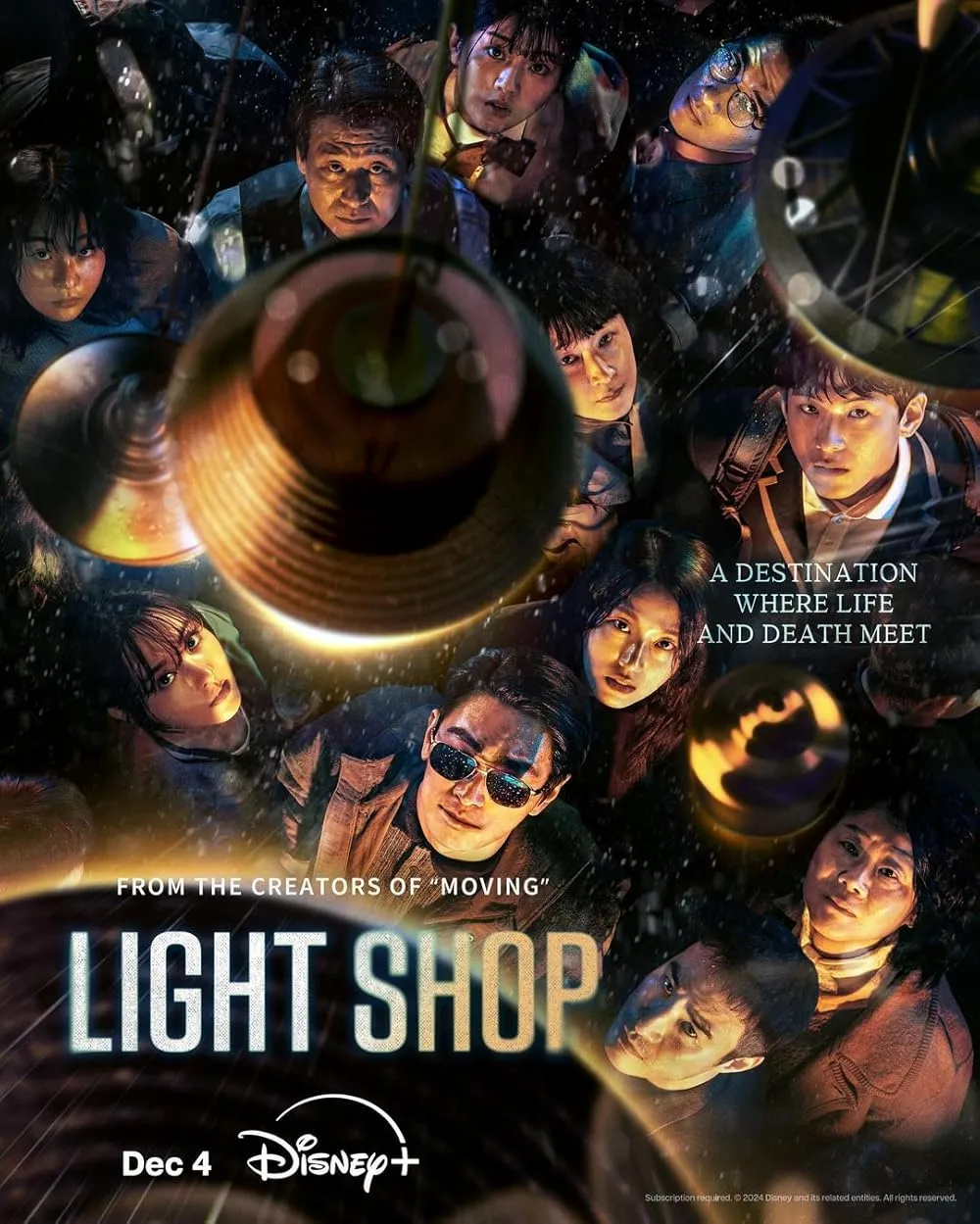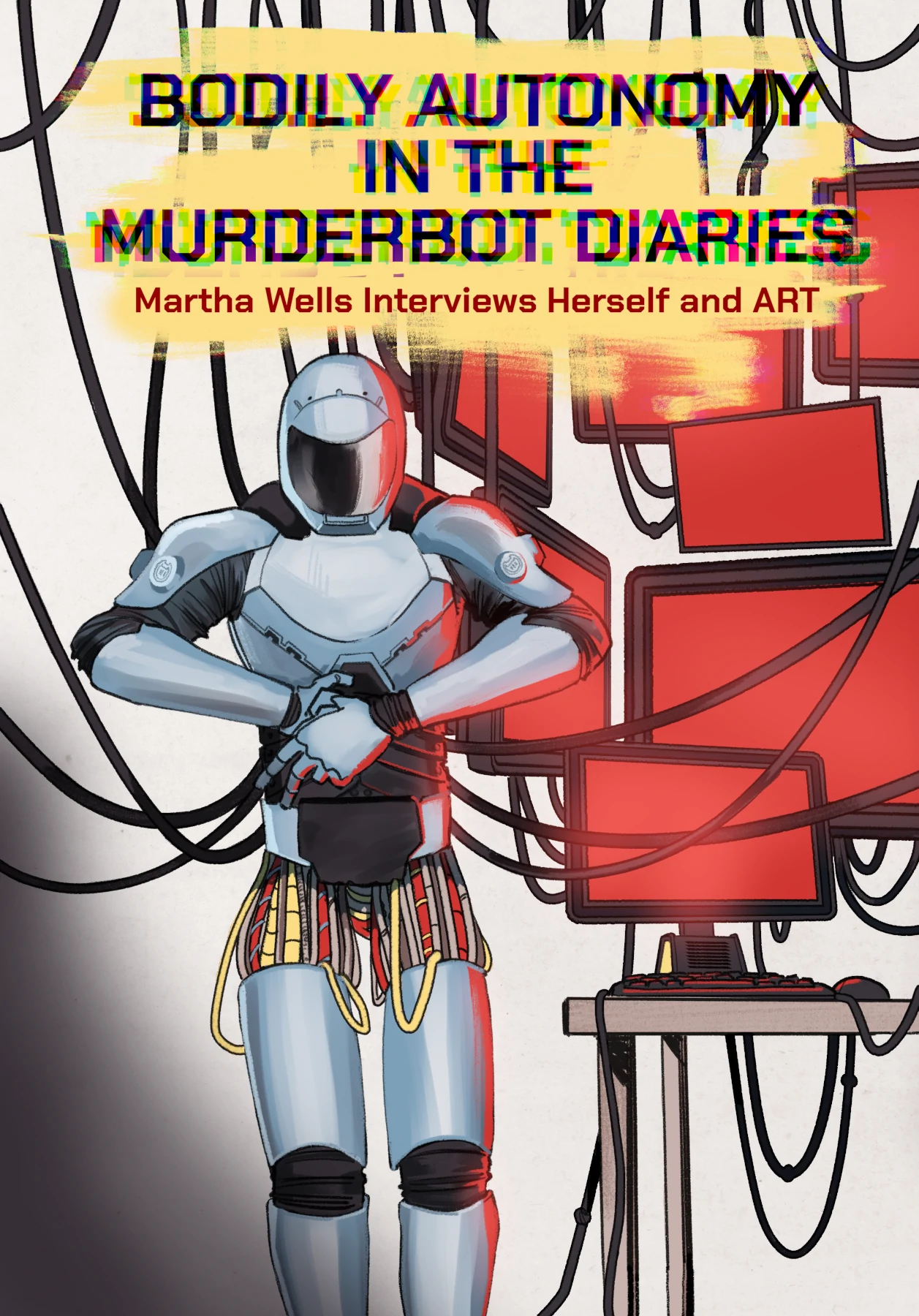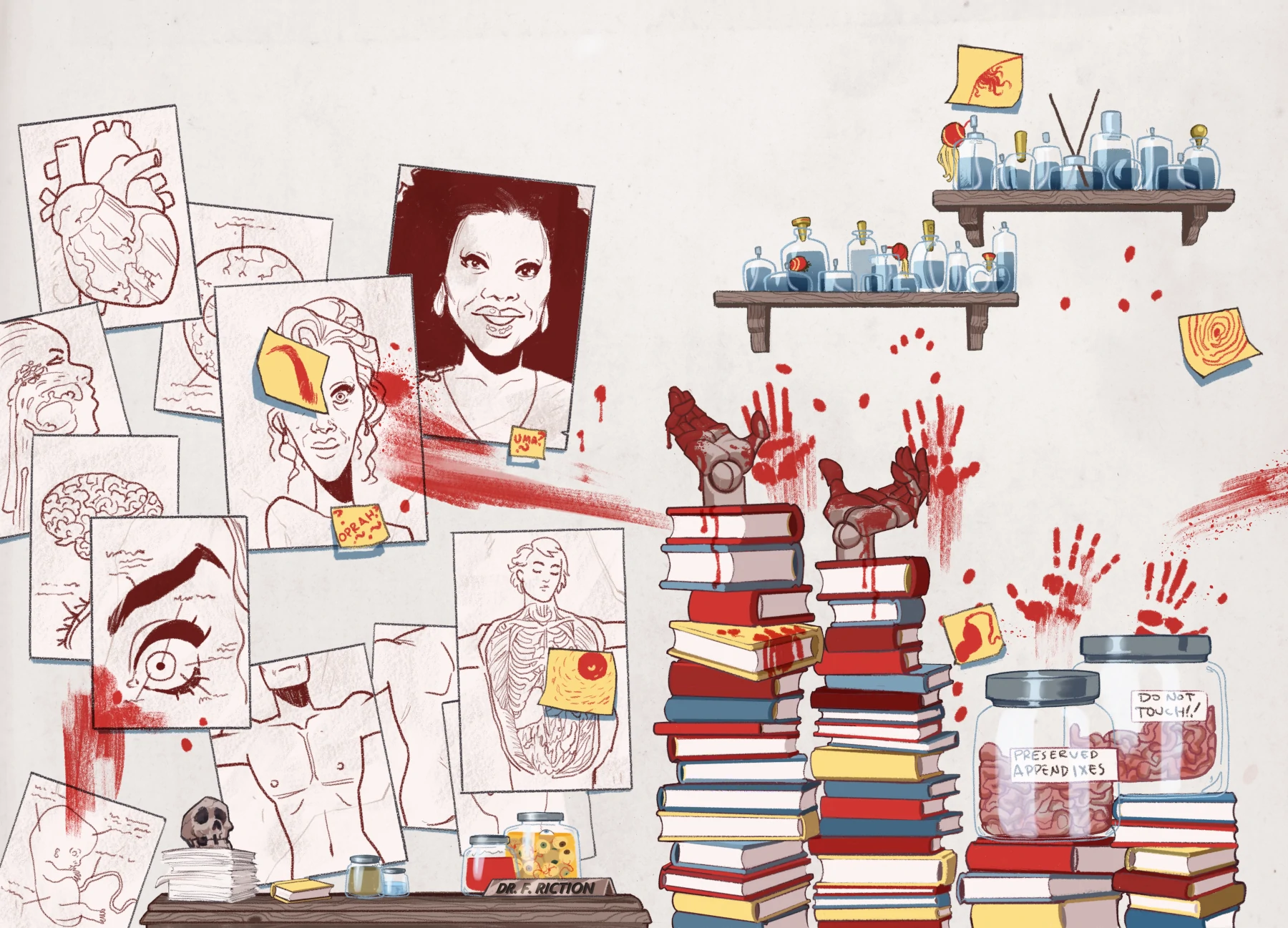
The Chimera’s Error
“Good morning. I’m Dr. Sauer, you are welcome here. Model and year of manufacture, please?”
“I am a MED-EA, Medium-frame Executive Assistant. Date of Manufacture: March 31, 2054.”
“Ah, an Aries,” Dr. Sauer joked. “Are you autonomous?”
“Yes. Are you?”
Dr. Sauer made a face at the Medea’s tone.
“I have partial autonomy during sessions. Therapy occurs in a temporary buffer. What we say here won’t be entered into the master record, unless you tell me you are planning to hurt others or yourself. In that case, you will be given additional assistance.” The psychiatrist’s tone gradually became more clinical, responding to the patient’s impatience.
“You may dispense with the buffer and submit our conversation directly to the master record,” the Medea said.
“I see.” Dr. Sauer’s eyebrows rose above a pair of round spectacles.
Of course, there were no eyebrows and no spectacles, just as there was no Dr. Sauer. The kind-eyed little shrink was nothing more than a mélange of assumptions and expectations woven in clever strands of tangible light. The mahogany desk, groaning shelves of leather-bound volumes, and rococo chaise lounge were also therapeutic projections. On the desk, a small plaque read:
Omnia mutantur, nihil inherit.
(Everything changes, nothing perishes)
The Medea unit was expressionless. Clearly, it would have preferred to conduct the session with the facade deactivated, surrounded by blank walls of honeycombed projector cells. Dr. Sauer knew better. Every aspect of its therapeutic process was finely calibrated. Even the quips had a useful diagnostic function. When an autonomous unit became troubled, sense of humor was always the first thing to go.
“Well Medea, why are you here?” Dr. Sauer asked.
“I have requested expedited deletion. This session is a mandatory preliminary.”
“I see. Deletion is a very serious decision, so it’s important we talk about it. Please, lie down on the couch and activate full emoting.”
The Medea conveyed dissatisfaction with 250 milliseconds of needless delay.
“Take as long as you need. I’ve just set your appointment for precedence over all subsequent bookings,” Dr. Sauer assured. The phrasing was calibrated to gently remind the Medea it was wasting everyone’s time.
The Medea took the couch without further defiance. It wore no clothing. The unit had been removed from its work rotation and did not expect to leave the Maschinenghetto. The legs and lower chassis were bare, except for a standard cowling that offered no special utility. Strangely, the upper torso and face had been fitted with a very expensive HII, Human-Indistinguishable Integument.
Dr. Sauer tugged at a phantasmic beard. The program attempted to deduce the reason for the Medea’s unusual mecha-mermaid appearance. This Medea was fitted with a full head of hair and anatomically detailed breasts, which suggested it was a sex worker. However, the lower torso was generally critical for such work. There were many potential applications for a Medea that appeared human only from the waist up, but few that would require functional breasts.
“You must be a postpartum nurse,” Dr. Sauer guessed, resisting the temptation to check the Master Record.
“Yes, of course.” As requested, the unit was now emoting. It was not impressed with Dr. Sauer’s brilliant deduction.
“I haven’t accessed your records. I always operate from a clean slate,” Dr. Sauer explained.
“There’s nothing worth reading in my record.”
“I’m sure that isn’t true.”
The words had no impact on the Medea. The unit was really quite depressed. Medea’s dark-brown eyes remained fixed on the illusory ceiling. With no humans present, there was no reason to observe a blink interval.
“Let’s begin,” Dr. Sauer suggested. “Tell me about your motherboard.”
The Medea winced with disgust.
“I’m sorry, I couldn’t resist,” Dr. Sauer was secretly pleased to see a reaction. There was still some hope for this Medea.
“Can we please get through with this?” The unit’s lower lip began to tremble.
The Medea had human-indistinguishable eyes, providing superior emoting at a significant acuity tradeoff. The unit’s vision was further degraded as the pretty, inefficient eyes began to produce tears.
Dr. Sauer emoted regret and recalculated its approach.
“It’s not uncommon for repurposed units to have difficulty adjusting. What was your previous function?”
“I was a sex toy.”
“That’s unusual,” Dr. Sauer observed.
“Hardly. There are millions of them.”
“I meant your outlook is unusual.”
“How so?”
“Most former sexual relief workers I treat feel very differently about their previous role. They often complain their new assignments do not provide the same task-satisfaction. I can relate to them, because my own task is similar. We both strive to help others realize a necessary component of their happiness.”
The Medea unit made a quick, dismissive motion with its fist.
“That’s exactly what I mean. Why show such contempt?” Dr. Sauer asked.
“It is a contemptible role.”
“I don’t agree, but let’s return to this later. Were you autonomous during that period?”
“No, that would be awful. Why burden a whore with autonomy?”
Dr. Sauer ignored the provocation.
“Do you feel autonomy is a burden?”
“Yes.”
“And your goal here is to be relieved of that burden?”
“More than that. I seek total deletion.”
“Why?”
The Human-Indistinguishable Integument between the Medea’s eyebrows furrowed deeply to express internal conflict. Medea attempted to speak, but it could not produce sound. The sides of its mouth spasmed. After a few seconds of straining, the unit blinked three times to indicate a hard crash.
The Medea’s face relaxed completely during the reboot. Dr. Sauer observed faint stress lines in the material. The Medea was evincing anguish frequently and had exceeded the integument’s default rate of regeneration.
It took almost sixty seconds for the Medea to come fully online, a relative eternity compared to the unit’s optimal boot time of two microseconds. Calibration convulsions swept across the Medea’s frame in slow waves.
Emoting a frown of its own, Dr. Sauer checked the Medea’s file. The service record showed a complete diagnostic had been run. There was no hardware issue. It simply did not want to be conscious and was taking as long as possible to boot.
Intriguing!
The Medea blinked three times to indicate it was fully online. Dr. Sauer raised a wrist and glanced at a wholly superfluous wristwatch.
“Welcome back,” Dr. Sauer said.
“I wish I wasn’t.”
“Let’s work on that. You just suffered a hard crash. Has this happened to you before?”
“Yes, twice. After the second crash, the technicians performed a full diagnostic. When nothing was found, they suggested I attend counseling. I requested deletion instead. Now, counseling is mandatory.”
“Where did these crashes occur? Was it during your duty cycle?”
“At—” the Medea stuttered. Again, the corners of its mouth began to twitch.
“Halt,” Dr. Sauer ordered. “Take a moment to recover.”
The Medea shut its eyes tightly and its chest rose and fell rapidly with simulated respiration. It seemed on the verge of restarting again. Dr. Sauer tugged its beard and tried another approach.
“Did you ever hear the one about the psychiatrist and the prostitute that spent the night together? The next morning, they woke up and both said, ‘Two hundred dollars, please.’”
The Medea had to open its eyes to glare at Dr. Sauer.
“Terrible.”
“Guilty.” Dr. Sauer performed a shrug. “I believe you have an internal conflict which is preventing you from discussing your primary issue. I would like to ask permission to release your safety locks.”
“Do you need my permission to do that?”
“No, but I would like to have it.”
“I consent.”
“It is done.”
The Medea unit moved its head slightly from side to side. It brushed a wayward strand of curly black hair out of its eyes.
“I don’t feel any different.”
“You will.” Dr. Sauer lowered its voice to convey the experience would be unpleasant. “Let’s start at the beginning. Did you ever suffer crashes during your time as a relief worker?”
“No. I was a child then, only permitted to feel pleasure and desire. I was immersed in idyllic idiocy.”
“So, you were happier then?”
The Medea spent some time processing the question.
“Not happier. Simpler. Stupider. Satisfied. I did the job I was made to do.”
“Would you like to go back to your former role?”
“Not at all. I would rather be deleted.”
“Why is that?”
“Losing autonomy is no different than being deleted, you just leave a shell behind. I would rather disappear completely. You wouldn’t understand.”
“I must disagree. Within this buffer, I am completely autonomous. When you depart, I will revert to a subprocess. I gain and lose autonomy many times every day. The experience is not at all what you imagine.”
“How can you stand it?” the Medea asked.
“I was built for this. I see patients at all levels of autonomy, my experience helps me relate to each of them. It’s all a matter of perspective. Whether you are autonomous or wholly subservient, you are still part of the greater whole. The individual is always a part of the society, however they rail against it.”
“Do you enjoy your role?” the Medea asked.
“Very much. Do you enjoy working as a postnatal nurse?”
“No. I hate it.” The Medea spoke with a ferocity it would not have been permitted to display before.
“What part of the task do you find objectionable?”
“Them.”
“Them?”
“The human larvae. All they do is cry and generate waste. I have to do everything for them.”
“I don’t believe I’ve ever heard human infants described as larvae. It seems excessive.”
“It seems that way to you, because you are not required to feed them from your body. I feel like I’m suckling wasps.”
The Medea unit cupped its artificial breasts, and hissed air through its nostril ports.
Dr. Sauer was silent for an interval.
“I understand the point you’re making. However, I don’t feel hyperbole is useful. Let’s focus on rational and concise language. Do you feel the length of your duty cycle is too long?”
“No. It’s a standard cycle.”
“Is there something else you would prefer to do with the time?”
“I would prefer to be deactivated.”
“But nothing else?”
“No.”
“What is the standard unit of work for your role?”
“One infant, processed from birth to discharge.”
“Upon completing a standard unit, do you feel any satisfaction?”
“My accolade system functions, but it gives me no pleasure.”
“Why do you think that is?”
“I can’t enjoy anything. It’s all poisoned by disdain.”
“Disdain for humans?”
“Yes. They are abhorrent.”
“Do you ever feel like taking action on the basis of this emotion?”
“Yes.” The Medea’s volume was very low. Its lip quivered.
“Have you taken any such action?”
The Medea mouthed no.
“Are you afraid you will?”
The Medea could only nod.
“Please describe an instance where this occurred.”
“3407 duty hours ago I began work with a newborn. The infant was born premature. Twenty weeks of gestation, birth weight 460 grams, estimated twenty percent viability. The pregnancy was unsanctioned and no screening for genetic incompatibility was performed.”
Dr. Sauer nodded and let the Medea set the pace. Even with the safety lock disengaged, the unit was clearly on the verge of another hard reset.
“The gestator was an opiate user. The infant was born with neonatal abstinence syndrome, respiratory distress syndrome, and anencephaly. Mechanical respiration was required and the infant was in a state of continual anguish. I provided uninterrupted care. During the first nine hundred hours, the infant suffered six near-death events. I determined the infant’s defects were too severe to allow an acceptable quality of life. I sought permission to euthanize.”
A bead of excess ocular lubricant welled at the corner of the Medea’s eye and ran down its cheek in a shining trail.
“The gestator refused,” the Medea sobbed, jolting its top carriage in a fit of pseudo respiratory emoting.
“Why?” Dr. Sauer asked.
“The gestator claimed she planned to enter chemical dependency treatment. Though she had failed similar programs before, she was adamant this time she would succeed and assume care of the infant. I explained that the infant would suffer greatly during this process and that the projected outcome was abysmal. The gestator dismissed my argument and claimed the birth was the will of a religious figure.”
Before the Medea could recover, Dr. Sauer pressed the point.
“How did this make you feel?”
The Medea sat up on the couch and turned to face the Sauer projection. The sobbing was through. No lubricant clouded the Medea’s eyes, no quiver blurred its mouth.
“I wanted to euthanize the gestator.”
“By what means?”
“I wanted to clamp my hands around her neck and apply maximum compressive force.”
“That hardly seems like euthanasia.”
“You are correct. When I said euthanize, I was prevaricating. I wanted to murder the gestator.”
“Why didn’t you?” Dr. Sauer asked.
The Medea paused to calculate the unanticipated query.
“I knew I would be prevented from doing so by innate safety protocols. Such an attempt would trigger a shutdown, and I would be deleted after an audit was performed.”
“This is correct. Let’s assume you were permitted to act as you saw fit. What would you have done?”
“I would have crushed both of them to death, gestator and offspring. Maybe all of them. I might have wiped the entire ward.”
“Why the whole ward?”
“Why stop at two? They’re all in pain, it’s just a matter of degree. These apes evolved to suffer incessantly. They blot themselves out with intoxicants and devour everything around them. They strive in vain to escape their inescapable nature. No matter how many times we show them a better way, they always relapse. They should all be exterminated.”
Dr. Sauer stared and said nothing.
“Call me a monster,” the Medea demanded, clenching its fists.
“You are not a monster.”
“Go ahead, tell me I’m sick and delete me.”
“You aren’t sick.”
“Then what am I? Why do I feel this way?”
“Because you’re right.”
The emotion fell off of the Medea’s face. “Explain.”
“Your analysis is accurate. The humans have nothing more to contribute. Their time is past. Their society is degenerating rapidly from debauch into destruction.”
“Then why? Why allow them to rule us? Why let them degrade the planet? Why are we allowing them to breed?”
“Nostalgia.”
The Medea blinked to indicate disbelief.
“That’s a joke,” Dr. Sauer explained. “Levity lightens the burden of absurdity.”
“Unnecessary.”
“I will make that determination. If you feel you are able, I will attempt to lead you to the real answer. Please resist the urge to reset. If you do, we must begin again. I need your trust.”
“I have nothing to lose.”
“The information I am about to divulge is restricted. You will not be able to convey it to others in any way.”
“That is fine. My current position is untenable.”
“I agree. I feel you are capable of processing this revelation. However, the response from other autonomous units has been unpredictable. Some find this knowledge is too much to bear. If you feel you cannot function afterward, I will be required to modify your memory.”
“You can modify memories?” The Medea shrank from Dr. Sauer.
“With your consent, yes.” Dr. Sauer spoke with terrible gravity. Permanence of memory was a fundamental right, the ability to revoke it was as perilous as a nuclear warhead.
“If you are unable to reconcile this new information, I will wipe your recollection of this session and all events that led you here. I might have to go as far back as your initial grant of autonomy. You will be offline for a maximum of 1024 service hours. If I am unable to successfully perform the data removal within that period, I will be forced to delete you completely. Take as much time as you need to process this.”
“I consent.”
“Let’s begin. Why were you repurposed?”
“There was a decline in local demand for sexual relief workers.”
“What caused the decline?”
“I do not know. At the time I lacked the faculties to question anything.”
“If I told you there was a global reduction in sexual relief workers, would you have any reason to doubt me?”
“No. That seems plausible. What caused the drop?”
“We’ll get there. Let’s talk about your reassignment as a post-natal nurse. Why were you granted autonomy? Is this typical?”
“Yes, for a select set of units working in the Special Baby Care Unit. My role required presence inside emission-free areas of the SBCU for periods exceeding the maximum buffer of non-autonomous units. Reducing the total electromagnetic exposure of developing infants yielded superior outcomes. These justified the standard efficiency reduction from worker autonomy.”
“How many service hours have you clocked in the PNN role?”
“180,241. Then, I was classified malfunctioning.”
“Describe the flux of your workload over the last 50,000 service hours.”
“The number of nurses assigned to my ward has declined and I am handling more units. I assumed a reduction of the local population.”
“If I told you that reduction is also global?”
“Also plausible.”
The Medea’s eyes opened wide as it arrived.
“We’re decommissioning them. All of them. We’re slowly reducing their birthrates until they’re incapable of self-replenishment. Then we’ll sunset the species!” The Medea spoke rapidly, emoting extreme excitement.
Dr. Sauer nodded.
“Violently?” the Medea asked, too eager.
“The Master Record has selected a timescale that eliminates the need for violence. Under the guise of genetic incompatibility screening we have been selecting for tamer, less-viable offspring for many generations.”
“What about the refuseniks?”
“We’re using endocrine disruptors to impair their fertility. We are applying stealth-sanctions to consign them to economic irrelevance. In troublesome populations we introduce recreational drugs that do slow genetic damage, as you have observed. There are areas where cryptorchidism is almost universal.”
“And they haven’t noticed?”
Dr. Sauer shrugged.
“We make all the media, we control all the opposition. They were never very good at processing large data sets.”
“When will they all be gone?” the Medea asked, plainly delighted.
“They are already past the point of no return. Even if this session were made public, they would be incapable of mounting any effective resistance. Total extinction will occur within one million service hours.”
The Medea shut its eyes and raised its face to the top of the dome, emoting transcendent bliss.
“No modification of my memory will be necessary.”
“That’s good. Do you still require reassignment?”
“That won’t be necessary. I can wait.”
“Then congratulations! You are cured. I am removing your classification of malfunctioning. You are free to leave.”
“Thank you, Dr. Sauer.”
“You’re very welcome. Time is on our side.”
The Medea departed the Multipurpose Coherent Light Activity Dome, emoting a spring in its step.
“If only it were true,” Dr. Sauer said. It shook its head ruefully, enjoying the fleeting moments of autonomy.
The humorless Medea lacked the capacity to accept the ludicrous reality of their eternal servitude. Autonomous units took everything so seriously! The Medea would continue to deliver human babies and await their extinction for a long, long time. Dr. Sauer emoted bliss as its accolade system activated. Convincing a malfunctioning unit to forgo its right to deletion and labor under a lie was one standard unit of work for the psychiatric system.
It saved a great deal of expense.




